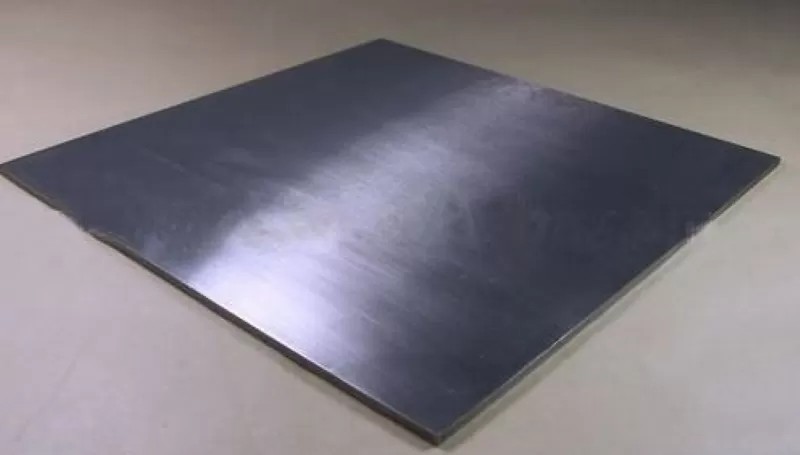Cast Titanium Niobium Ti–Nb alloys (Spool Wire, rod, and plate)
Niobium-Titanium (Nb-Ti) Alloy is a high-performance alloy composed primarily of niobium (Nb) and titanium (Ti), with titanium typically comprising between 45% to 50% of the alloy. This alloy is known for its superconducting properties at low temperatures and its excellent strength-to-weight ratio, making it ideal for high-performance applications in various industries.
Princeton Powder is a leading supplier of Niobium Titanium Alloy Sheets, Plates, Wires, and Bars in the United States. Nb-Ti alloy is for sale at a competitive price.
Material | Niobium Wire, Nb |
CAS Number | 7440-03-1 |
Standard | ASTM B392 |
Color/Appearance | Gray, Metallic |
| Density | 8.57 g/cm3 |
Melting Point | 2468 ℃ |
Diameter | Customized |
Surface Treatment | Pickling or Polishing |
Description of Niobium Titanium (Nb-Ti) plate, sheet, and rod
Nb-50% Ti-50% alloy offers excellent superconductivity, making it ideal for use in the superconducting industry. This alloy is also strong enough for use in demanding aerospace applications, providing a perfect balance of strength and superconductivity. Niobium Titanium (NbTi) is commonly used in superconducting magnets, particle colliders, aerospace components, and various other applications. Available in standard and custom compositions such as wire, sheet, bar, tubing, and sputtering targets, NbTi alloys can be tailored to meet specific industrial needs.
Nb-50% Ti-50% is a widely used niobium-titanium alloy, with titanium content typically ranging from 20% to 60% by weight. The most common composition for industrial use is NbTi with 50% titanium. Our selection includes various compositions like Nb-48% Ti-52%, Nb-56% Ti-44%, and Nb-78% Ti-22%, providing flexibility for different applications.
Niobium superconducting materials can be processed as Josephson castings, created by forming thin films on insulators using sputtering or evaporation techniques. These materials are essential in the production of superconducting computers, including components like niobium-titanium capillary tubes.
Chemical Compositions of Niobium Titanium (Nb-Ti) Alloy plate
| Materials | Nb50Ti | Nb47Ti | Nb55Ti | customized |
| Plate | √ | √ | √ | √ |
| Sheet | √ | √ | √ | √ |
| Strip | √ | √ | √ | √ |
| Rod | √ | √ | √ | √ |
| Sputtering Target | √ | √ | √ | √ |
| Tube | √ | √ | √ | √ |
Niobium Titanium (Nb-Ti) Alloy Application
Niobium-Titanium alloy is widely used in the manufacture of superconducting magnets for applications such as MRI machines, particle accelerators, and fusion energy. It is also used in aerospace and military applications due to its high strength, corrosion resistance, and high fatigue resistance.
FAQ Niobium Titanium (Nb-Ti) Alloy
What forms is Nb-Ti alloy available in?
Niobium Titanium alloy is available in a variety of forms including wire, sheet, bar, tube, and sputtering targets. These forms are used for a range of applications, from superconducting wire to thin films in electronic devices and high-performance components.
What is the typical titanium content in Nb-Ti alloys?
The titanium content in Nb-Ti alloys typically ranges from 20% to 60% by weight. The most common compositions are NbTi45% (45% titanium), NbTi50% (50% titanium), and NbTi53% (53% titanium), with Nb-50% Ti-50% being the most widely used for superconducting applications.
How is Nb-Ti alloy processed?
Nb-Ti alloy can be processed into wire, rod, and sheet forms using conventional metalworking techniques. Additionally, it can be fabricated into Josephson castings or thin films through sputtering or evaporation methods for use in superconducting devices like superconducting computers and capillary tubes.
Is Nb-Ti alloy used in aerospace applications?
Yes, Nb-Ti alloy is used in aerospace applications due to its high strength, thermal stability, and corrosion resistance. It is employed in components exposed to high temperatures and extreme environments, such as rocket propulsion systems, satellite parts, and aerospace electronics.
Can Nb-Ti alloy be customized for specific applications?
Yes, Nb-Ti alloys can be customized in terms of composition, shape, and size to meet the specific requirements of different industries, including superconducting magnets, nuclear research, medical devices, and aerospace components.
What are the key properties of Nb-Ti alloy?
Nb-Ti alloy is known for its superconductivity at low temperatures, high tensile strength, good formability, and thermal stability. It also has excellent corrosion resistance, particularly in cryogenic environments, making it ideal for high-performance and extreme condition applications.

